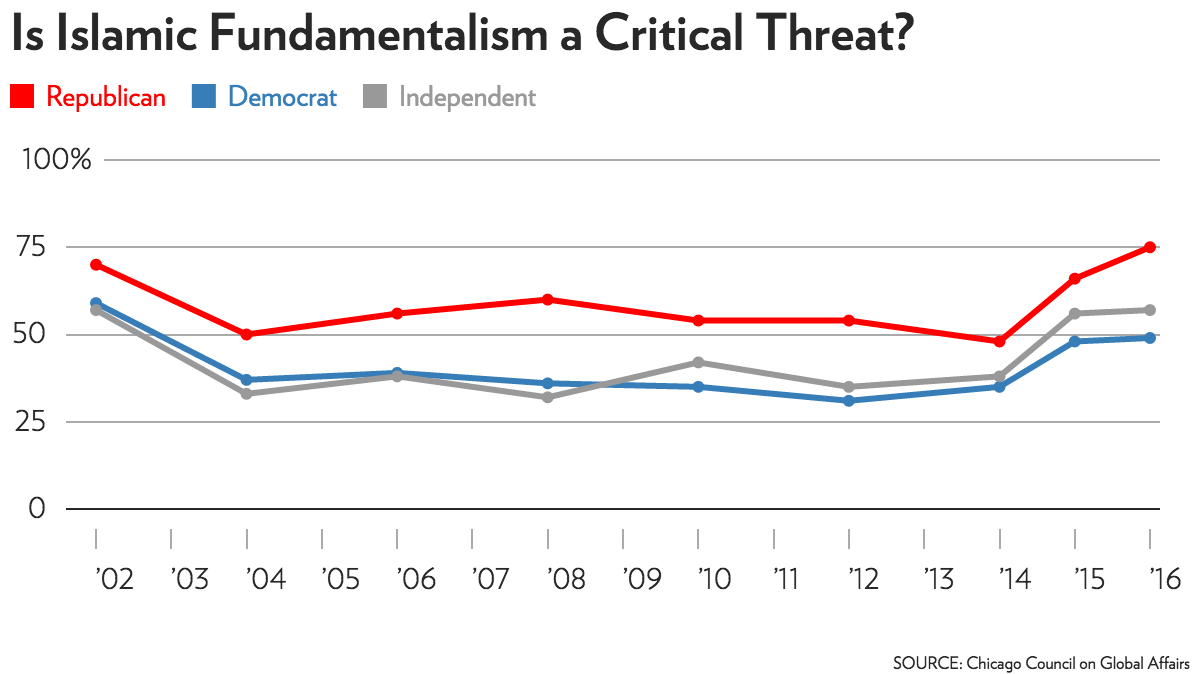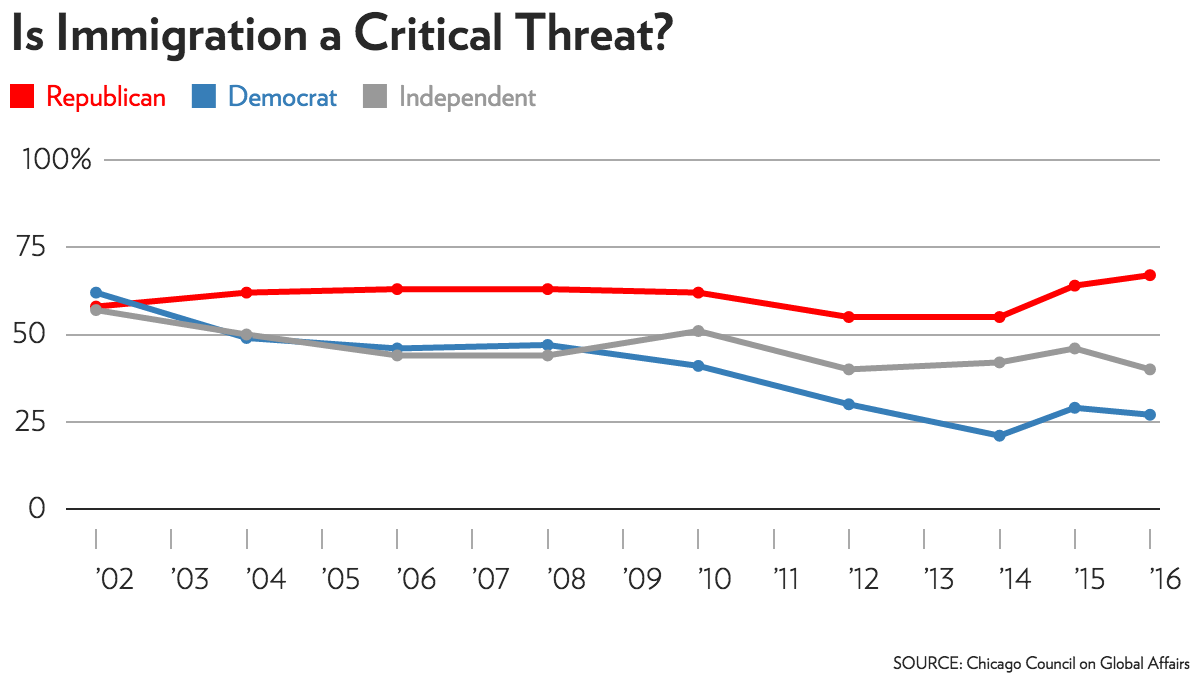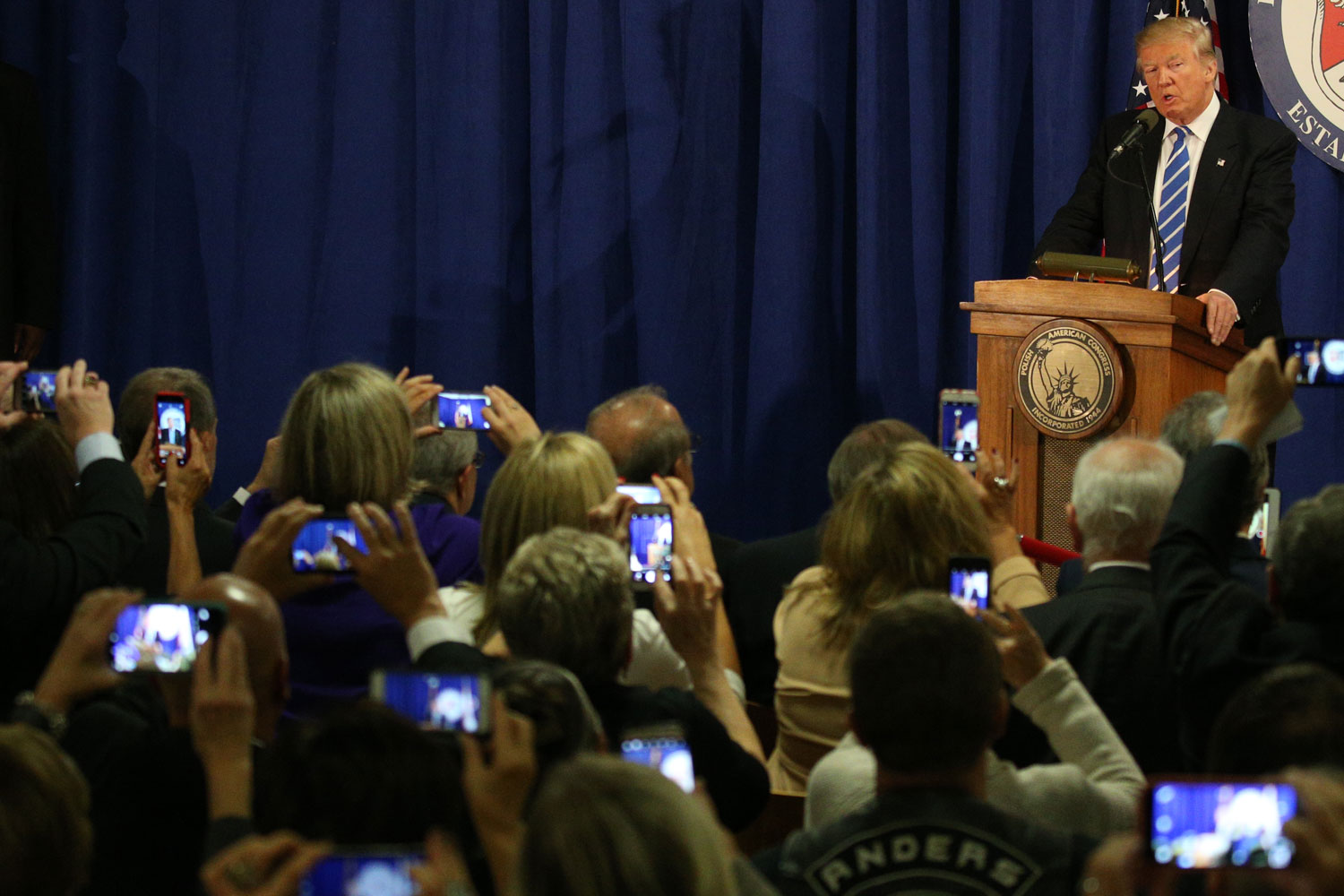While browsing the Chicago Council of Global Affairs's site to see what they'd been writing since the election, I came across something that they'd done about a month before that caught my eye. It's a study, "America in the Age of Uncertainty," that continues the organization's polling up through the election's homestretch.
The main conclusion is not a surprise: "Over the past year, Donald Trump has been able to channel the anxieties of a significant segment of the American public into a powerful political force, taking him to the doorstep of the White House. These public anxieties stem from growing concerns about the effects of globalization on the American economy and about the changing demographics of the United States."
But some of the numbers are. The Council has been polling on the topic of Islamic fundamentalism (their phrase) for years now, asking respondents whether it is a "critical threat," "an important but not critical threat," or "not an important threat at all." And something remarkable happens in 2015.

The percentage answering that it is a critical threat is high in 2002, the year after 9/11. Then that belief tails off for over a decade… until 2015, when there's a massive spike, particularly among Republicans, who are more likely to believe it's a critical threat than in 2002.
This parallels the Council's polling on immigration more generally.

Again, there's a jump from 2014 to 2015 among all three ideologies, though it's more attenuated. It subsequently declines among independents and Democrats, but continues to a record high among Republicans.
Another Council finding helps explain why the immigration bump in 2015-2016 is less dramatic than the Islamic fundamentalism bump. In the 2016 survey, the Council asked respondents whether they have a very favorable, somewhat favorable, somewhat unfavorable, or very unfavorable view of two different immigrant demographics.

The net favorable view of Middle Eastern immigrants is lower across the board by similar percentages. It's a striking pattern.
Looking back on these patterns, though, it made me wonder about how much Trump tapped into these anxieties—and how much he drove them. Pew found a huge decrease in the percentage of Republicans who said that immigrants "strengthen" America from March 2014 to May 2015—one month before Trump announced his candidacy—from 42 percent to twenty seven percent. It doesn't have to be either-or; it could well be that Trump picked up on our anxieties, and made us more anxious in turn.



